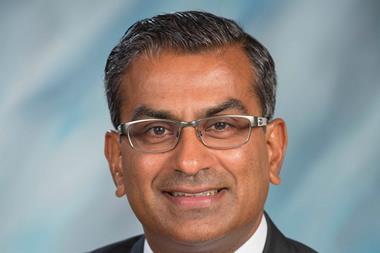New US president Donald Trump has met with the chief executives of a large number of big US carriers, as well as senior executives of airport authorities and representatives of aviation trade bodies.
The meeting took place at The White House, during which he outlined some of his thoughts on the challenges facing the country’s aviation industry.
In particular he pointed to the need to invest in airport infrastructure and air traffic systems across the country.
“Our airports used to be the best. Now they’re at the bottom of the rung,” he warned.
Trump also took aim at the new air traffic control system, known as NextGen, being developed in the US, which he described as being “totally out of whack. It’s way over budget, it’s way beyond schedule, and when it’s completed, it’s not going to be a good system,” he said.
Trump also said he would be looking at easing regulatory and tax burdens on the industry.
The president also suggested that the funding for infrastructure spending would not come from raising taxes or fees.
One participant suggested that an increase in the passenger-facility charge, which currently stands at $4.50, could be used to fund airport improvements.
“The problem is, I don't like raising fees or taxes − I'll be honest,” Trump said. “I mean, we're spending all this money overseas, we're giving away trillions of dollars to all these countries.
“All of the countries that trade with us are ripping us off. The last thing we have to do is raise the fee. I understand what you're saying, but $4.50 - it's a lot when you look at all of the passengers.”
The meeting was attended by a broad section of the industry, including Bill Flynn, president and chief executive, Atlas Air Worldwide Holdings; Dave Bronczek, president and chief operating officer, FedEx Corporation; and Myron Gray, president, US operations, UPS.
It was also suggested by one participant that the US Federal Aviation Administration (FAA) needed to be reformed as a not-for-profit corporation with seats on the board given to a range of interested parties.
While the president did not respond directly to this suggestion, he was keen for pilot representation at the top level of the FAA.
In an introduction earlier in the event, Trump was giving little away on his feelings about foreign airlines' access to the US market.
“I know you're under pressure from a lot of foreign elements and foreign carriers,” he said.
“I've been hearing that a little bit. At the same time, we want to make life good for them also. They come with big investments − in many cases, those investments are made by their governments. But they are still big investments.”
This comes as the row over Middle Eastern airlines access to the US market looks to be re-emerging.
At the start of this month (February), a number of US legacy passenger airlines resurrected their complaints to the US Government that they are suffering as a result of Middle Eastern carriers being unfairly subsidised by their state authorities.
Others, including Atlas and FedEx, have asked for the current status quo to be maintained.










